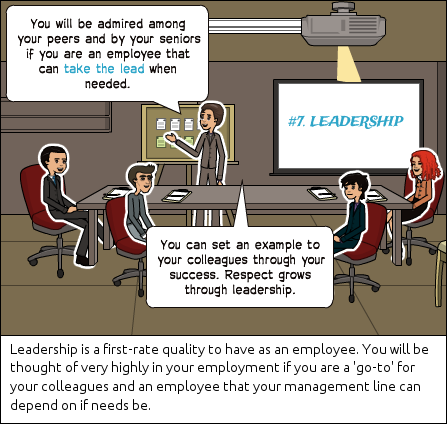How to Ask for a Promotion

Asking for a promotion can make you feel vulnerable. You’re not in total control of the direction you feel you are deservedly looking to take, and that can be frustrating. When you put yourself forward for promotion or request one directly, you must be prepared to be judged. Your previous work and education will be put under the microscope to be dissected by your superiors. It is a stressful moment, the result of which is potentially life-changing; and not just for financial gain. A promotion could determine the direction your entire career will take. You may worry that you’ll be bugging your boss or coming across as greedy and self-serving, but in order to advance in your career, you’ll need to learn to advocate for yourself. To put it simply, if you don’t ask, you don’t get. Here are some tips on how to make the request:
Reflect
The first step in the process is to ask yourself why you want this promotion - really give it some thought. What is your primary motivation behind applying for a promotion or requesting one? Do you want the power that goes with the responsibility of moving into a higher level? Is money the main motivation? Is there already a position you covet, or do you wish to create a new role in which you can maximize your skill set? Do you want to move up in the ranks, or would a lateral move interest you? It’s also important to think about how your skill set aligns with the objectives of the organization. This will help you position your request for promotion in a way that connects to broader strategic goals.
Build Your Case
Once you’ve clarified exactly what you’re looking for, build a compelling case for why you deserve promotion. This is particularly important if you’re asking to advance ahead of your organization’s promotion cycle. Be prepared for a “What have you done for me lately?" mentality. Clearly outline your proven track record. Be confident of the impact you have made and will continue to make towards the growth and success of the company. Outline the targets or solutions you have delivered, and financial outcomes for which you’ve been responsible (never underestimate the significance of financial outcomes). It might also include data from other divisions or Consumer or Employee surveys that point to your success. You’re trying to prove that you have the abilities to transition smoothly into the level you're looking to be promoted to. A good idea would be to figure out who your successor might be. Show your Manager that you’re working hard to develop someone else. This not only showcases your leadership capabilities; it will also relieve your boss to know that there is someone who can fill your shoes.
Be Patient
In an ideal world, you approach your boss, you ask for that promotion and he or she agrees there and then on the spot. In the real world, this rarely happens. Promotions rarely happen overnight, and you must not get discouraged if you don’t immediately succeed. Be realistic. While you’re waiting, continue to do good work, look for ways to increase your impact, and elevate the level at which you operate. That said, do not ignore signs that things may not be going your way. If you look around and see others getting promotions while you're being overlooked, talk to your boss. Ask, "Will you recommend me for a promotion when one becomes available?" If you learn that you’re not on your Manager’s radar, then think about whether you want to stay in your organization and work harder to draw attention to yourself, or whether you want to look for a job elsewhere. The bright side: at least you know where you stand.
Principles to Remember
Do:
- think about the position you want and how it aligns with the objectives of your organization and your Manager.
- think about why you want the promotion and what the pros (positives) and cons (negatives) of you going for this might be. If the cons outweigh the pros, it is probably best to hold off until you are ready.
- prepare a memo that clearly outlines your proven track record and provides concrete metrics on the impact you’ve had - Manager's love paper trails!
- ask your Boss for regular feedback and advice on how you can get to the next level.
- establish how your goals and long-term plan fit in with the company objectives and ethos. Are they a good fit? Do they work for both parties?
Don’t:
- assume that asking for a promotion is a one-and-done discussion. It is usually a series of ongoing conversations.
- get discouraged if you don’t get what you want right away. Be patient.
- drop your standards and level of professionalism and performance if you do not get the result you’re looking for. This will be detrimental for any future openings and will rule you out of the running for consideration for the future. It could also have an impact on references for future employment.
- give up. Keep your goals alive. A rejection should not define who you are professionally. Channel your disappointment and keep your focus.
The Team at EnglishLogica wish you the best of luck in your chosen career path.